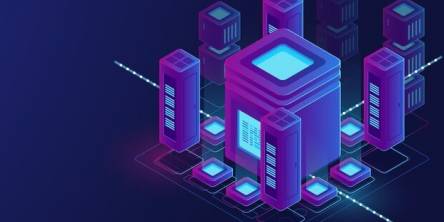Popular Benefits of IoT for Supply Chain Management

More and more supply chain companies are looking for solutions that can help them fortify their business operations. This search has led them to the Internet of Things, but what about this technology works for the supply chain management industry?
IoT has already revolutionized supply chain management by providing real-time data and visibility throughout the entire supply chain. It refers to a network of interconnected devices that are embedded with sensors and can communicate with each other and with other systems through the Internet.
So, listed below are some of the critical benefits IoT offers to supply chain management companies:
- Better speed: One of the most sought-after benefits of the Internet of Things is the innovative tools it has given the world. Nonetheless, speaking specifically in the supply chain context, there are tracking devices and route planning tools. All such solutions can help enhance the supply chain speed of operations through sharing of data, seamless communications, etc.
- Improved accuracy: IoT systems can be used to ensure that all stakeholders involved across the supply chain process can access necessary data to help identify and remedy issues quickly and efficiently. As a result, the degree of accuracy in the supply chain operations is significantly improved.
- Enhanced flexibility: In the supply chain context, IoT also empowers supply chain teams with extensive insights about critical aspects of their operations. Take insights gained from an analysis of goods turnover, for example; this data can be used to know the demand and the precise quantity of products that ought to be ordered. Did we mention that the Internet of Things further alleviates this process by minimizing the scope of error, thanks to the enhanced precision in shipping, fleet management, asset tracking, etc.
- Better segmentation: Yet another benefit that the union of the Internet of Things and supply chain management offers is the ability to gain insights into various factors that affect their operations. So, armed with new and better insights about market demand, products, and even the customers they serve, supply chain management businesses can put together strategies that help improve customer experiences, business results, etc. This data can also be used to achieve deeper insights that can also be leveraged for better segmentation and, consequently, effective targeting.
- Increased efficiency: The point of IoT in the supply chain is not aimed at just the goods and fleet but also at the employees. For example, IoT-based solutions such as smart glasses can be used to monitor and instruct warehouse workers remotely to ensure the efficient execution of tasks. Besides such tools, IoT can also gather efficiency-focused data, which can then be analyzed to drive more imaginative resource and labor management.
As the Internet of Things' popularity continues to overgrow and more companies in supply chain management embrace this wondrous technology, you can rest assured that the overall logistics industry is in for a groundbreaking transformation. As the discussion above demonstrates, the Internet of Things enables supply chain businesses to keep an eye on goods and ushers in improved quality and more transparency into the communications that keep such companies running. Overall, IoT has the potential to transform supply chain management by providing greater visibility, real-time data, and automation. As IoT technology continues to evolve, we expect to see even more innovative applications in the supply chain space. Oh, did I mention that this technology further empowers supply chain operations with better precision for planning? Anyway, the point is that a solution based on the Internet of Things in supply chain management is a terrific resource for any company operating in this sector. What are you waiting for, then?
Similar Articles
In the fast-paced world of supply chain management, it is vital to coordinate logistics operations for businesses aiming to meet customer demands, reduce costs, and stay competitive.
The handling of projects may be characterized as a laborious and complex responsibility. From the formation of employment positions through allocating resources for managing work in progress, significant amounts of business hours and resources are used.
Discover the perfect project management software for your business with our guide. Explore key considerations to streamline your projects effectively. Choose wisely
Unless you live under a rock, you know that television and the overall idea of content consumption have changed drastically and beyond anything we would have imagined three to four decades ago. Over-the-top (OTT) apps continually reshape today's future of television
Unless you have been living under a rock, you know that the modern world has come to rely on mobile apps immensely. From simply being able to send texts to people over the internet to wiring money across the globe — mobile apps help us do it all.
We live in an immensely technologically advanced age. This is why it is no surprise that a rapidly growing number of companies are increasingly deliberating on the big question: is it time to migrate their legacy systems? While we cannot say why an individual company would need to migrate its systems, we do know why most companies want to migrate its legacy systems
Blockchain technology and the concept of a decentralized "Web3" internet have generated tremendous hype and interest in recent years. Beyond cryptocurrencies like Bitcoin, the potential for decentralized applications built on blockchain platforms has been driving innovation.
In today's digital age, a compelling logo is essential for any business or brand looking to establish a strong online presence. Your logo is often the first thing that potential customers see, and it can significantly impact their perception of your brand.
In an era where digital assets and data are the lifeblood of businesses, ensuring robust cloud security has never been more crucial. As a rapidly growing number of companies and other entities in the world embrace cloud computing, it has become vital to focus on the one factor that remains all-important, no matter the technology involved: security.









